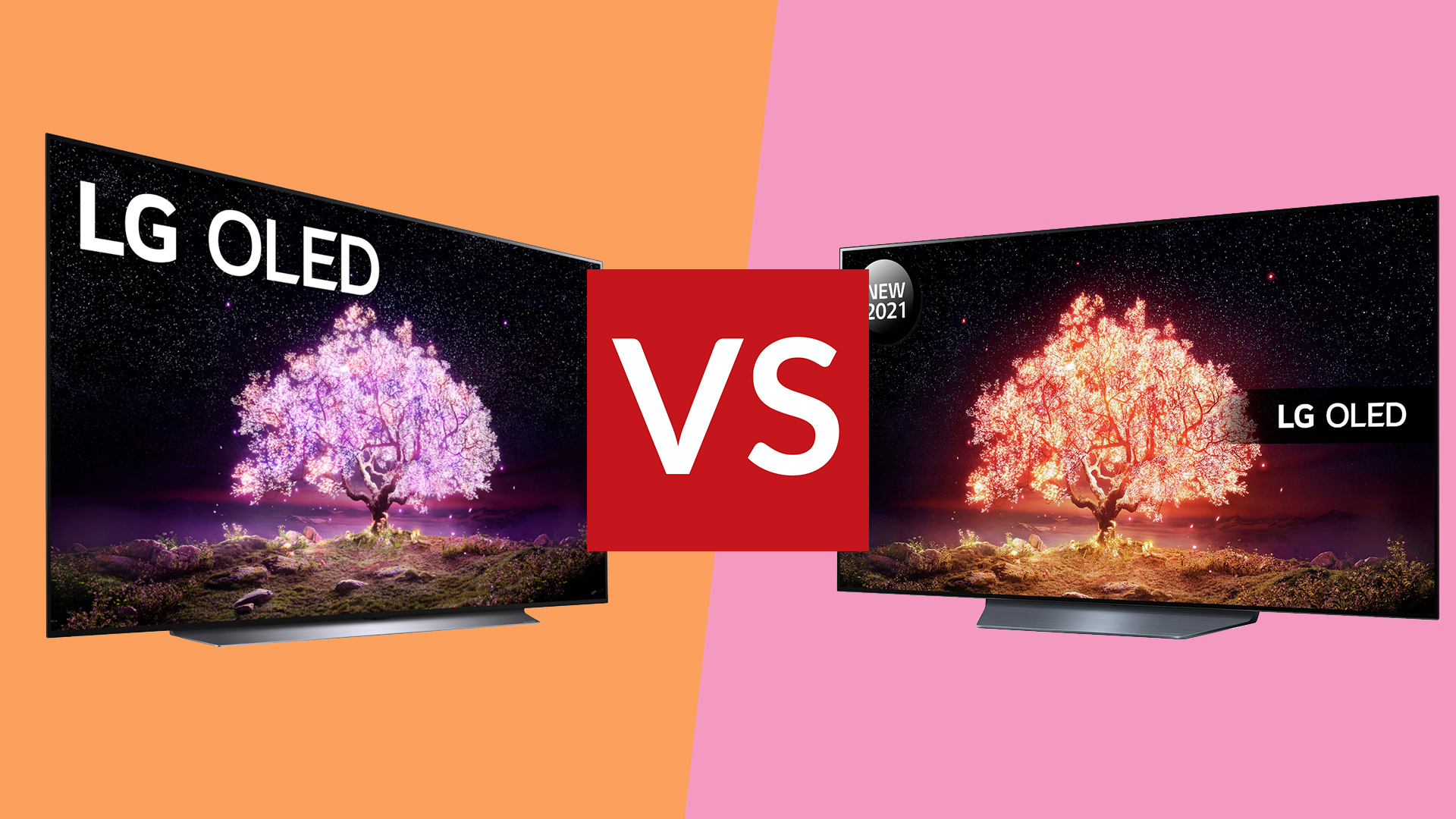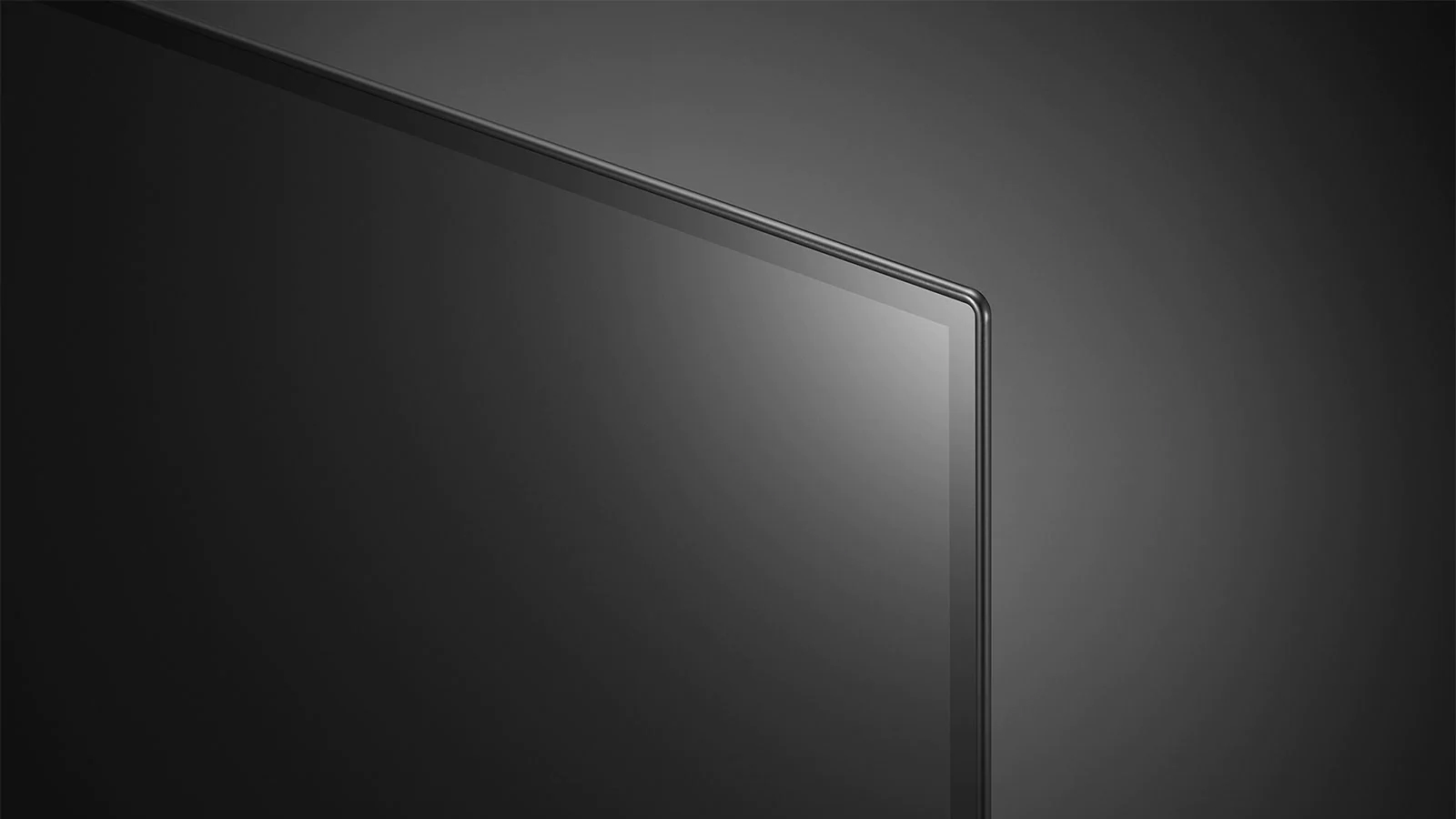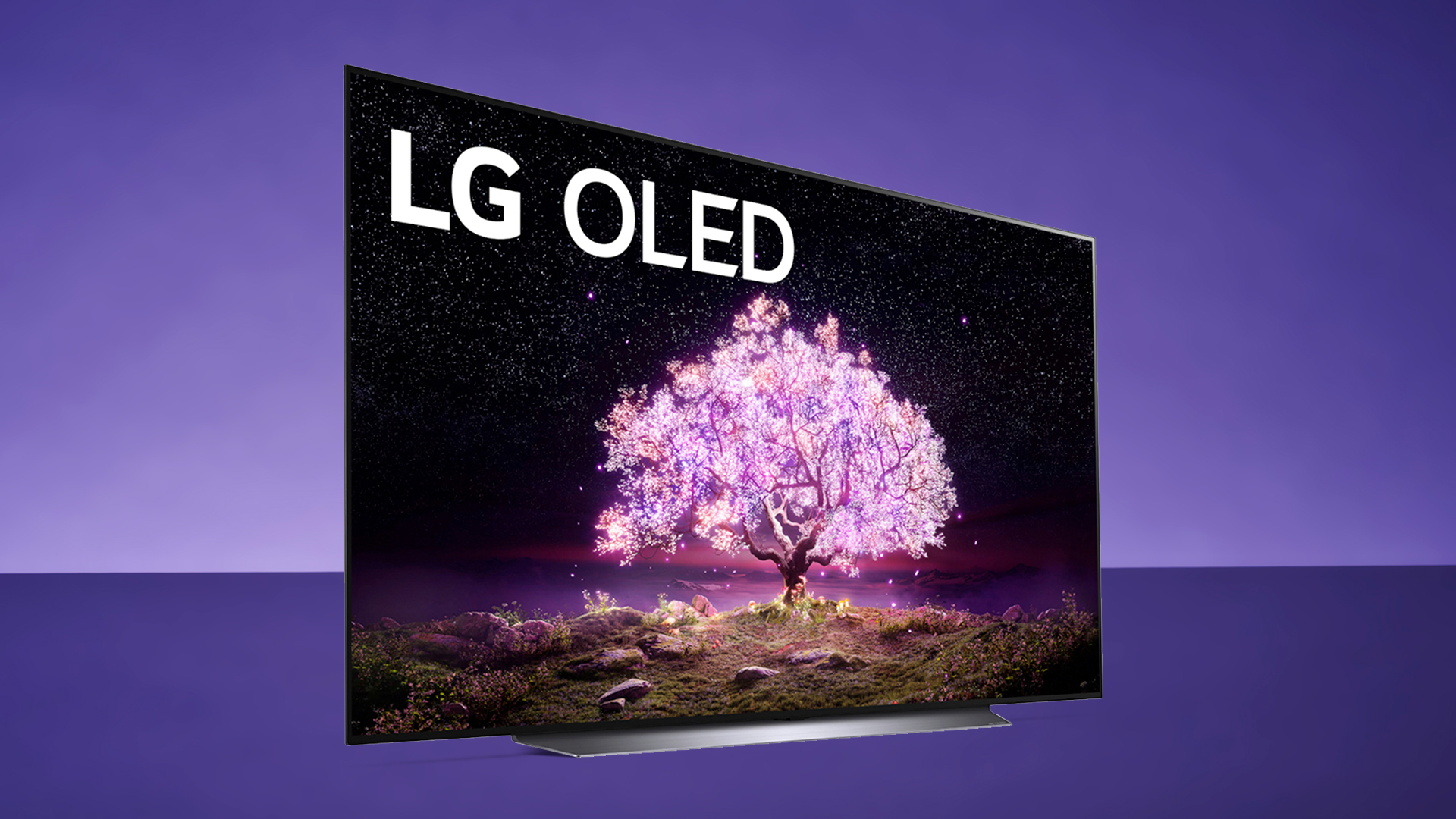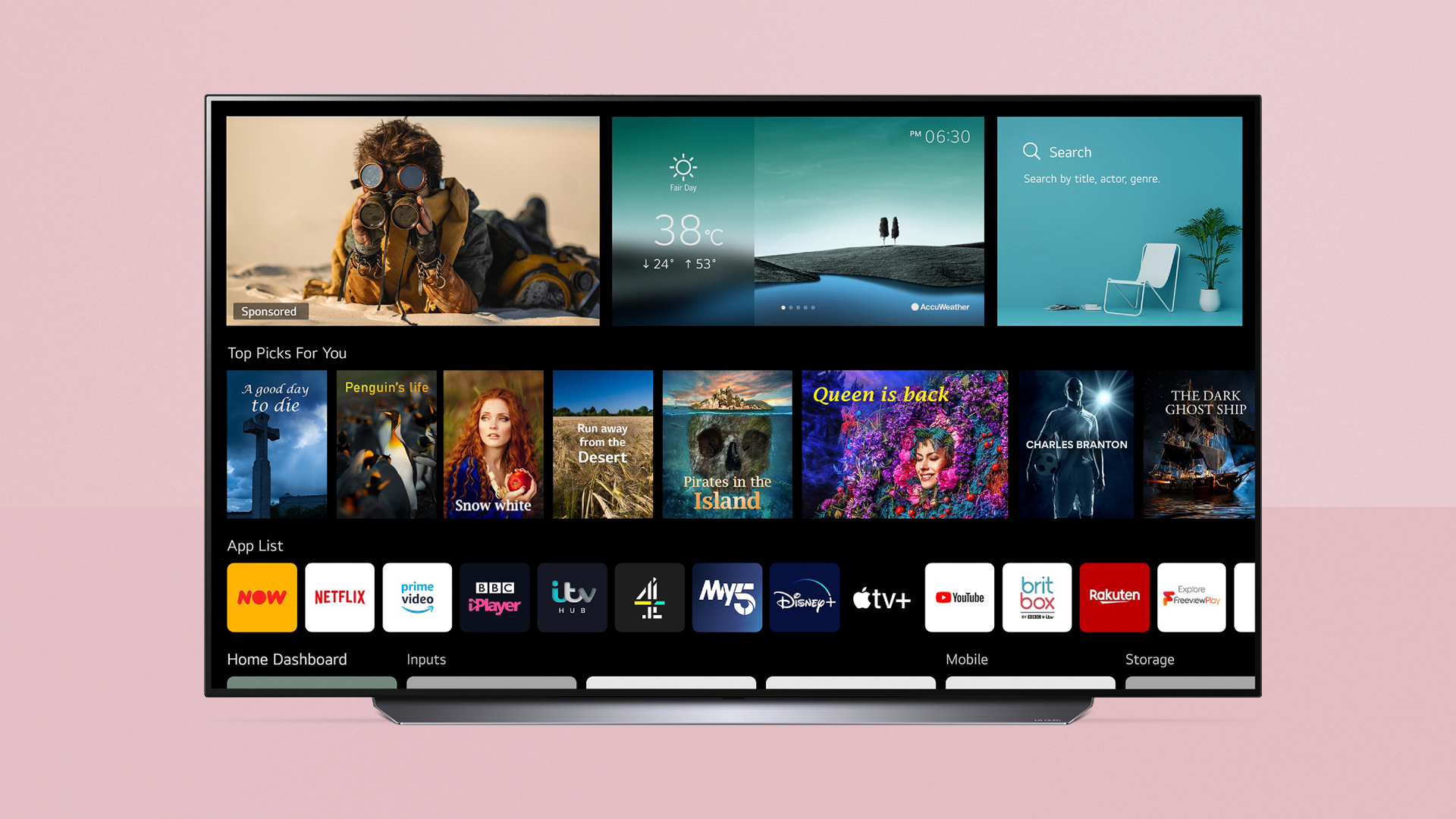LG C1 vs LG B1: which 2021 LG OLED TV is best for you?
LG's C1 is a five-star stunner, but does the cheaper LG B1 hold more value? We explain all the differences


If you’ve managed to hold out on buying one of the best OLED TVS so far, then congratulations, because 2021 is an incredible year to finally pick a new screen. OLED is currently in a welcome iterative phase. This means that while new whippersnappers MicroLED and MiniLED grab the headlines, OLED is quietly being upgraded in the background, making that rich contrast even richer with new processing technology and enriching the already superior experience.
The LG C1 is the perfect example of this. The C1 is the updated version of 2020's LG CX range which dominated our list of the best gaming TVs last year, and constantly impressed as the perfect sweet spot of picture quality and price. Well now the C1 does the same, and as we say in our LG C1 review “LG C1 brings extra sharpness and refinements to its images, and connectivity and features remain at the head of the pack. Another smash hit.”
But what about the LG B1? As with the C1, the B1 is the 2021 version of the LG BX range. Previously the BX range was the cheapest of LG’s OLED line-up and thus a great entry point for those wanting a quality screen but not fancying emptying the bank. This year, though, there will also be the LG A1, which is set to be the cheapest LG OLED so far, and actually replaces the B1 in the USA, though in Europe both will be on sale.
For now, let's look at the differences between the LG B1 and the LG C1, which is a step up in the range.

Both LG TVs are ultra-slim, thanks to the thin OLED panel.
LG C1 vs LG B1: Price and sizes
The LG C1 comes in an even bigger selection of sizes than the CX did, meaning whatever your room size, there’s a C1 to suit. The C1 is now in five different sizes and the starting price doesn’t hurt as much as you think it will. The 48-inch model comes in at £1,299/$1,499, the 55-inch is £1,699/$1,799, the 65-inch is £2,499/$2,499, the 77-inch is £4,499/$3,799, and the 83-inch behemoth will set you back a cool £6,999/$5,999.
The LG B1 doesn’t come in the same vast selection of sizes, but the three screens on offer are exceptionally affordable for the real estate. The 55-inch model will set you back £1,599, the 65-inch is £2,399 and the 77-inch model is £3,899. As we said earlier, there’s no US pricing as the B1 model won’t be released on both sides of the Atlantic thanks to the introduction of the LG A1.
The price difference between the two isn’t much at the smaller sizes but the £600 difference on the 77-inch model is a pretty big deal – you could budget in one of the best soundbars for that.
Get all the latest news, reviews, deals and buying guides on gorgeous tech, home and active products from the T3 experts
LG C1 vs LG B1: Picture quality
The good news is that both the LG C1 and LG B1 feature the precise colours and mind-blowing per-pixel contrast that OLED is known for, as well as both boasting a 120Hz panel that's ideal for new-gen gamers armed with PS5 or Xbox Series X
One of the big differences between the two is the LG processor on offer. The LG C1 has what LG is calling its Advanced A9 Gen 4 AI processor, while the B1 has a slight downgrade on this, the A7 Gen 4 AI processor. As we say in our LG C1 review, the A9 processor really makes a big difference with the C1 delivering “lots of ‘wow, that’s better than last year’ moments” with “Motion handling particularly noteworthy, courtesy of some clever new image interpolation techniques”.
That’s not to write off the B1 processor as LG’s processing has always been superlative but there will be a slight difference in image quality here – we're also expecting the B1 to offer a slightly lower peak brightness than the C1, which was the case with last year's models.
Both the LG C1 and LG B1 have Dolby Vision IQ which means that Dolby Vision content will automatically adjust according to the lighting environment in your room. Using sensors in the TV to judge brightness, the screen will then alter the necessary settings to make sure you don’t feel like you have to constantly shut the curtains to watch your favourite crime drama – at least, within the limits of OLED's brightness, which can't go quite as bright as elite LED TVs.
Both TVs also have AI brightness controls and AI face enhancing technology. Other than that processor difference, LG is being exceptionally generous with the B1’s functionality.

The LG B1 and C1 look nearly identical, though the C1 is available in larger sizes.
LG C1 vs LG B1: Sound quality
Even in 2021, we’re still asking this big question: Are you going to have to shell out for a soundbar if you want the sound of the LG C1 or B1 to match the quality of its images? And once again the answer is still going to be probably, yes.
As we quest for thinner, more svelte TVs, audio, as ever, is left behind, with the C1’s “middling” sound being one of the only negatives in our review. While the C1 has Dolby Atmos decoding, the audio is limited by the speaker positioning and design, even if it does now have a front firing speaker rather than downwards.
But that doesn’t mean you instantly need to buy a soundbar and day to day audio can be impressive. LG’s AI Sound Pro does improve the soundstage and if you’re constantly frustrated by low dialogue and big booms, it does go a way to sharpen the spoken word. It's just not very cinematic.
Given that the B1 has down firing speakers rather than front, the sound quality here isn’t going to fare any better. The B1 matches the 40W output of the C1, though, and also supports Dolby Atmos. The B1 also has Clear Voice Pro the same as the C1 so you’ll have a much better chance of hearing what’s being said here too.
Given that you’ll eventually want a soundbar for both, definitely don’t let audio quality be your deal breaker between the two. It’s no coincidence that both TVs have an eARC port for sending the highest-quality audio out to a soundbar or AC receiver.

LG's new smart platform is available on both TVs, and is really easy to use.
LG C1 vs LG B1: Design & features
Other than a slightly different stand offering – neither of which will be suited to a soundbar directly in front if it's too tall – the LG C1 and LG B1 are both ultra thin, and neither is an eye sore with their practically bezel-less displays.
But it’s the features here that might swing you in one direction or the other. Connectivity wise, the big difference between the pair is that the LG C1 has 4 HDMI 2.1 ports, while the B1 only has two HDMI 2.1 ports and two HDMI 2.0 ports. HDMI 2.1 is a key feature for new PS5 and Xbox Series X owners as this means variable refresh rate (VRR), auto low latency mode (ALLM), and 4K gaming at 120 frames per second. Both screens are G-Sync and FreeSync compatible too, so are great for PC gaming as well as console.
Basically, if you want to futureproof yourself as being able to plug in as many HDMI 2.1 devices as you can imagine, then C1 is the better choice. The B1's two HDMI 2.1 ports mean you could still have two consoles running at their full capabilities, but that's it. Its other two HDMI ports still hand 4K at 60fps – just not at 120fps, or with the other gaming features.
Both the LG C1 and B1 also come with LG’s new WebOS 6.0 with what LG is calling AI ThinQ. This 2021 LG specific software has been redesigned for faster access to the streaming services you actually want, and both TVs ship with LG’s new Magic Remote control.
This has all the dedicated buttons you’d expect, including Netflix, Prime Video, and Disney+ and there’s functionality for both Amazon’s Alexa voice assistant as well as Google. Both TVs also support Apple AirPlay 2 video streaming.
LG C1 vs LG B1: Verdict
There’s no outright winner here – it's all about the price balance. Regardless of your choice, LG’s generous functionality means you’ll be buying an excellent screen either way.
The LG B1 is clearly an exceptional budget offering with plenty of tech crammed in – it's surprisingly futureproof considering it's the more budget offering – but if you can afford to take the step up, the LG C1 is the gift that keeps on giving.
A more powerful processor means you can properly appreciate LG’s AI innovations and those four HDMI 2.1 ports will keep you perfectly connected for the years to come.
Louise Blain is a journalist and broadcaster specialising in technology, gaming, and entertainment. She has a weekly consumer tech slot on BBC Radio Scotland and is the presenter of BBC Radio 3's monthly Sound of Gaming show. She can also regularly be found on BBC Radio 4, BBC Five Live, and The Evolution of Horror podcast as well as writing for GamesRadar and NME. Louise loves finding ways that tech can make our lives better every day and no, she doesn't have enough smart lighting yet.
